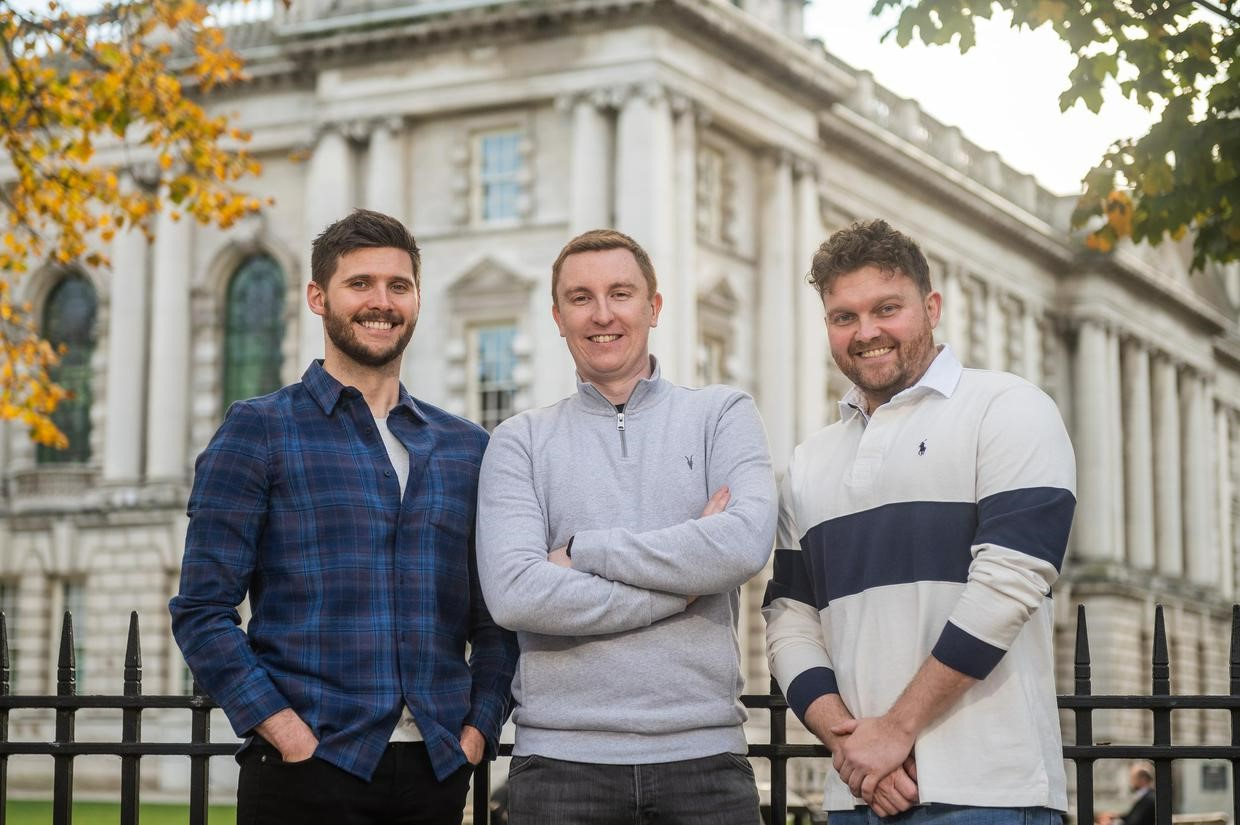
25 Feb Northern Ireland start-up Overwatch Research acquired by US giant Benchling
Congratulations to Overwatch Research, and their co-founders Chris Armstrong, Graham Wilsdon & Paul Wilsdon, on being acquired by ‘US giant’, Benchling.
(Pictured above from left, Overwatch Research co-founders Graham Wilsdon, Chris Armstrong and Paul Wilsdon)
In addition, congratulations to local HBAN (Halo Business Angel Network) investors, who invested in the company following its pitch to the HBAN (Halo Business Angel Network) network in November 2019.
This is another great deal for a local founded and venture capital backed company and further proves the global value and interest in Northern Irish businesses.
Article from: belfasttelegraph.co.uk
A Northern Ireland biotech start-up has been acquired by US business Benchling.
The San Francisco giant has paid an undisclosed sum for Overwatch Research, based in Belfast.
Brothers Graham and Paul Wilsdon, along with Chris Armstrong, set up Overwatch Research in 2017. At the time, Chris and Graham were 27 and 26.
Overwatch Research specialises in software which aims to eliminate the errors of scientists carrying out research into drugs during preclinical development.
Their software has already drawn multi-million pound export deals in the US.
Clients include Boston-based Blueprint Medicines, The Institute of Cancer Research in London and a global pharmaceutical company which agreed a multi-year seven-figure licence deal.
Benchling said the acquisition broadens the capabilities of its research and development Cloud for biotech.
And it would ultimately enable them to help customers speed up the time it takes to bring products to clinic.
Scientists normally use paper notebooks, spreadsheets, and other manual processes for capturing and analysing complex experimental data.
But that work can often not be replicated, which is thought to cost between $10bn to $50bn a year in the US alone.
Dr Chris Armstrong, chief executive and co-founder, said: “Our software tackles core challenges contributing to the preclinical reproducibility crisis.
“This helps biopharmaceutical companies and contract research organizations (CROs) reduce errors, increase confidence for first-in-human studies, and ultimately get drugs to patients faster.
“By incorporating our in vivo study capabilities into Benchling’s industry-leading R&D Cloud, we’ll be able to reach more scientists and help them turn initial research findings into life-saving products.”
Sajith Wickramasekara, CEO and co-founder of Benchling, said: “Overwatch impressed us with their ability to build the first truly modern product for in vivo studies that is beloved by its customers.
“Many of our biopharma and CRO customers are looking for a comprehensive offering that brings together Benchling’s bioanalytical capabilities with Overwatch’s in vivo study management and we look forward to Overwatch addressing that growing demand.
“Welcoming the Overwatch team to Benchling will also deepen our presence in Europe.”
Benchling first entered the European, Middle East and Africa (EMEA) market last year, and has now reached over 120 customers in Europe including Alchemab Therapeutics, AviadoBio Ltd, Cutiss AG, Wellcome Sanger Institute’s Tree of Life programme, Selexis SA, and Syngenta, and grown its European team to more than 90 people.
In October, Overwatch Research announced it had raised $3.5m from investors. And in May, it announced it had invested £0.5m in research and development (R&D) with the support of economic development agency Invest NI.
The company first launched its software in 2019 after accessing Invest NI support.
However, Invest NI has been unable to offer support to companies after March 31 due to budget restrictions. It’s facing a hole of £23m a year due to the loss to the Department for the Economy of European funding.
In May, Invest NI said it had offered the company support totalling £259,290 for six staff, R&D and market development activities.
It participated in the Co-Founders programme run by Catalyst NI before joining Invest NI’s Propel Pre-accelerator in 2018.
The R&D support had been part-financed by the European Regional Development Fund, which is no longer available.



